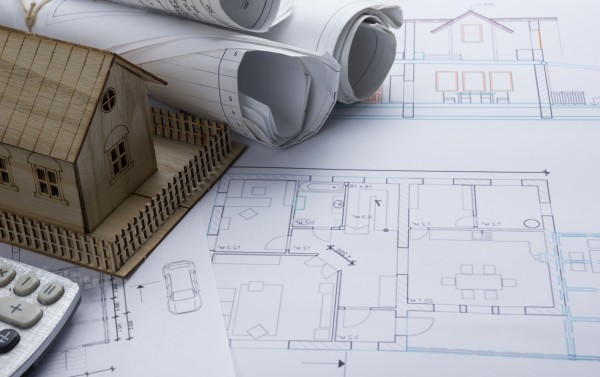Buying property or land at auction
You’re interested in self-building and looking for something unconventional. At auction you could pick up a bargain from a rundown bungalow or a plot – there’s something for everyone.
Auctions might be off-putting as you may think they attract property experts but they are one way to avoid the traditional house buying chain. Plus, there’s the thrill of seeing all the other bids made right in front of you. With the conventional house buying route you could face a gazumping and everything falling through.
However, just like in any other buying process there’s always risk involved. At an auction you could find yourself stuck in a bidding war, and if you lose out you will lose any money you’ve already invested into researching and carrying out surveys.
Worst case scenario? You could spend all that time and money on making sure a house is worth bidding on, only to find that someone has bought the property before it goes to auction.
See our tips for finding the perfect plot of land here.

Finding an auction house
Decide on the area you’d like to live and contact the auction houses in that area, then ask for a catalogue and subscribe to their mailing list. Visit the websites of UK Auction List or Essential Information Group to find out what is coming up.
According to the Homeowners Alliance, you have to pay an administration fee to the auction house, which is typically between £200 and £300. Other fees include stamp duty, solicitor and conveyancers’ costs plus insurance for your property.
Do your homework
Before the auction, do your research and shortlist the properties or land you’re interested in. Contact the auctioneers and arrange an appointment to view the properties. This is where your self-building vision comes in. You may find auction properties in a crumbling state of disrepair but you need to see beyond that. This is where you’ll discover a gem of a bargain.
Make sure you bid an appropriate amount and don’t pay over the odds. It’s worth taking an architect or a builder to any viewings so you have a better idea of what you’re letting yourself in for and how much it will cost if you end up owning the property. Look at other properties for sale in the local area and get an idea of prices. Never rely on the guide price on the auction catalogue.
One crucial piece of advice is to make sure you know what you’re about to buy. Getting a structural survey and a homebuyer’s report will reveal any cracks or structural issues before you close a deal. Yes, surveys could set you back hundreds of pounds but they mitigate against future risk. Once you receive a legal pack from the auctioneers do go through it with a fine-tooth comb. This pack will contain the deeds, the local authority and environmental searches etc. It may be worth appointing a solicitor to take a look over to uncover any potential issues.
The big day
If you’ve watched Homes Under the Hammer you’ll know that auctions can be fast-paced! But don’t let that stop you.
On the day of the auction remember to keep calm and get there early so you can find a comfortable spot. Why not visit an auction before you jump in headfirst? It’s worth watching a few auctions to understand how they work. Make sure you establish a budget – what can you afford? Don’t eagerly raise your hand and get stuck into purchasing something you can’t afford. Once the auctioneer cries out “sold” to end the bid, you are locked into the purchase.
Be prepared and make sure you have two forms of identification, such as a passport or utility bill, and proof that you can afford the 10 per cent deposit.
Don’t expect to pay the price featured in the guide – be conscious that it’s often set a lot lower than what the property is likely to go for.
When it comes to placing a bid, make a clear sign by raising your hand or waving a copy of the auction literature. Some events will use numbered cards or paddles, which you pick up when you register. The fall of the hammer marks an exchange of contacts, which means you’ll have to pay a deposit. The sale then completes at a pre-prescribed date – usually 28 days after the auction.
Finally, don’t be disheartened if it doesn’t work out this time round. Keep looking out for potential plots or property to suit your needs.


